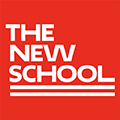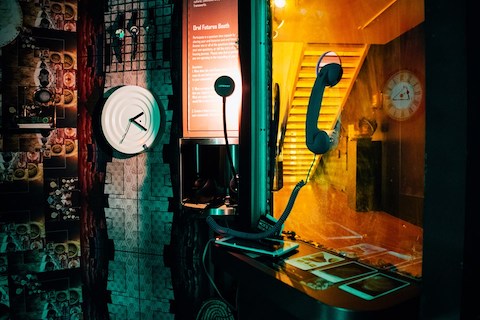the vera list center for art and politics presents its 2020 forum "as for protocols"The Forum runs from October 6 to October 10 and will feature compelling programming that includes the introduction of its VLC Fellows and the announcement of the 2020-2022 Jane Lombard Prize recipient and finalists. |
New York, September 17, 2020- The Vera List Center is pleased to announce the Vera List Center Forum, an international, annual convening of artists, curators, and activists in the fields of art and politics and presented online from October 6 to 10. This year’s forum introduces the center’s new 2020-2022 focus theme As for Protocols, that over five days will highlight the Vera List Center’s vibrant and expanding fellowship program culminating with the announcement of the finalists for and recipient of the 2020-2022 Jane Lombard Prize for Art and Social Justice on October 10. Past winners of the Lombard Prize include Maria Thereza Alves and Chimurenga. The VLC Forum 2020 addresses protocols as the underrecognized structures determining urgent issues in technology, biopolitics, racial inequality, and land and water rights and begins to chart the distinct curricular investigations that the center will develop over the next two years. The Forum will serve as a platform to introduce the five VLC Fellows Carolina Caycedo (Colombia/U.S.), Etcétera (Argentina), Maria Hupfield (Canada), Adelita Husni Bey (Italy/U.S.), and Rasheedah Phillips (Philadelphia) as well as the finalists for and recipient of the 2020-2022 Jane Lombard Prize for Art and Social Justice. Each day of the online forum will explore a different socio-technical aspect of protocols as it manifests in the work of artists, activists, and thinkers. “What is it that silences some and elevates others?” asks Carin Kuoni, Senior Director of the VLC. “Why do some kneel and others stand? Protocols are at the heart of our engagement with the world, and while often obfuscated or invisible, they determine much of what we do. They are evidence of power, and thus provoke subversion and action. The VLC Forum 2020 launches two years of programming dedicated to protocols where outstanding thinkers and makers from all over the world will join our learning journey. We are thrilled to share this initial deep dive into thoughts, sights, and projects-in-progress.” The Forum includes a series of comprehensive discussions alongside powerful performances, screenings, and readings. It begins on October 6 with a comprehensive tribute to scholar, educator, curator, and New York Times columnist Maurice Berger (1956-2020), who was the first Vera List Center Fellow in 1993. Berger’s seminal contributions to the studies of race and representation will be illuminated by scholar Courtney Baker, Smithsonian Secretary Lonnie G. Bunch III, scholar Sarah Lewis, New York Times writer David Gonzalez, in a discussion moderated by curator Kinshasha Homan Conwill. It will include a protocol-directed performance by VLC Fellow Robert Sember as well as video tributes; a piano recital by VLC Fellow Sarah Rothenberg closes out the evening with Morton Feldman’s last composition, Palais de Mari, presented earlier this year and dedicated to Berger. October 7 and 8 feature presentations and conversations with the 2020-2022 VLC Fellows and their guests: Carolina Caycedo with poet and MacArthur Fellow Natalie Diaz; Etcetera with art historian Jennifer Ponce de Leon; Maria Hupfield with Leanne Betasamosake Simpson; and Adelita Husni Bey with Robert Sember. Rasheedah Philips will talk about her work with Black Quantum Futurism and her research into the effects of time on Black Americans. On October 9, writer, programmer, and Professor Alexander Galloway delivers the keynote lecture, The Computable and the Uncomputableiin which he revisits his groundbreaking 2004 book Protocol: How Control Exists after Decentralization. The Forum concludes with What Protocols Are Needed Now?, a conversation with curators Ivet Curlin/WHW (Zagreb/Vienna), Natasha Ginwala (Berlin/Mumbai), Candice Hopkins (Toronto), Shuddhabrata Sengupta (New Delhi), and New York-based activist Tamara Oyola-Santiago, jurors of the 2020-2022 Jane Lombard Prize for Art and Social Justice. The recipient of the 2020-2022 Jane Lombard Prize for Art and Social Justice and the Jane Lombard Fellows will be announced with leading artists and practitioners in the field of art and social justice gathering from around the world.
VLC FORUM PROGRAM Tuesday, October 6 On Race, Representation, and White Lies: A Tribute to Maurice Berger Panel discussion with Courtney Baker, Lonnie Bunch III, Nona Faustine, David Gonzalez, and Sarah Lewis, moderated by Kinshasha Holman Conwill. Performative reading organized by VLC Fellow Robert Sember with Molly Rose Kaufman and Michael Roberson Piano recital with VLC Fellow Sarah Rothenberg
Wednesday, October 7 Artist Talks by the 2020-2022 Vera List Center Fellows Etcetera with Jennifer Ponce de Leon Carolina Caycedo with Natalie Diaz Adelita Husni Bey with Robert Sember
Thursday, October 8 Artist Talks by the 2020-2022 Vera List Center Fellows Maria Hupfield with Leanne Betasamosake Simpson and Rasheedah Phillips
Friday, October 9 The Computable and the Uncomputable. Keynote Lecture by Alexander Galloway Saturday, October 10 What Protocols Are Needed Now? Curators and activists in conversation: Ivet Curlin, Natasha Ginwala, Candice Hopkins, Shuddhabrata Sengupta, and Tamara Oyola-Santiago, moderated by Carin Kuoni. Announcement of the recipient of the 2020–2022 Jane Lombard Prize for Art and Social Justice and the Jane Lombard Fellows For more information, full program listings, and registration, visit www.veralistcenter.org The Vera List Center Forum 2020 is organized and convened by the Vera List Center curatorial team Heran Abate, Carin Kuoni, and Eriola Pira with the support of Adrienne Umeh, Joshua van Biema, and Maryna Arabei. “Race, Representation and White Lies: A Tribute to Maurice Berger” is organized with the support of Marvin Heiferman. The Vera List Center Forum 2020 is made possible by major support from Jane Lombard and the Kettering Fund, as well as the Andy Warhol Foundation for the Visual Arts, the Ford Foundation, the Boris Lurie Art Foundation, the Sigrid Rausing Trust, members of the Vera List Center's board, and other individuals. Additional support is provided by our academic home, The New School. The Boris Lurie Fellowship is generously sponsored by the Boris Lurie Art Foundation. The Borderlands Fellowship is a joint initiative of the Vera List Center and the Center for Imagination in the Borderlands at Arizona State University.
About As for Protocols Explicitly—or not—protocols determine much of what we do. Far transcending categories of “good manners,” they are like languages that regulate how we relate to each other, to our cultural, social, and political environments and the technologies that create them. With advances in artificial intelligence and robotics, controversies surrounding data mining and privacy, the embrace of Indigenous land practices long shunned by extractive industries, urgent demands to decolonize our institutions and vast disparities in responses to Covid-19, protocols are emerging as essential tools of empowerment: evidence of governmental, political, social, or corporate structures, they speak of power—and thus invite subversion, improvement, and action. About the Vera List Center for Art and Politics The Vera List Center for Art and Politics is a scholarly research center and a public forum for art, culture, and politics. It was established at The New School in 1992—a time of rousing debates about freedom of speech, identity politics, and society's investment in the arts. A pioneer in the field, the Center is a nonprofit that serves a critical mission: to foster a vibrant and diverse community of artists, scholars, and policymakers who take creative, intellectual, and political risks to bring about positive change. Media sponsor: Hyperallergic |
|
Founded in 1919, The New School was established to advance academic freedom, tolerance, and experimentation. A century later, The New School remains at the forefront of innovation in higher education, inspiring more than 10,000 undergraduate and graduate students to challenge the status quo in design and the social sciences, liberal arts, management, the arts, and media. The university welcomes thousands of adult learners annually for continuing education courses and public programs that encourage open discourse and social engagement. Through our online learning portals, research institutes, and international partnerships, The New School maintains a global presence.
|
 |
MARKETING AND COMMUNICATION |
| 79 Fifth Avenue New York, NY 10003 www.newschool.edu |
PRESS RELEASE |
Media Contacts: The New School |
|
|

